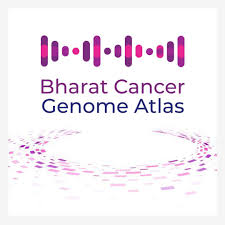A Gamechanger in Cancer Genomics
Launched in 2020, the Bharat Cancer Genome Atlas (BCGA) is revolutionizing cancer research in India. A collaboration between IIT Madras, Karkinos Healthcare, Chennai Breast Clinic, and the Cancer Research and Relief Trust, BCGA analyzes genetic variants from hundreds of breast cancer patient samples. Unlike global cancer genomic databases that focus primarily on Western populations, BCGA provides insights tailored to Indian patients.
Key Findings and Unique Contributions
India has one of the highest burdens of oral, cervical, and breast cancer, yet its representation in global cancer databases remains limited. BCGA addresses this gap with whole-exome data from over 950 breast cancer samples. This anonymized data is freely accessible to researchers and clinicians, making it the largest publicly available cancer genomic resource in India. The project aims to personalize cancer care by moving beyond the generalized treatment models derived from Western data.
Expanding to Other Cancer Types
Breast cancer was chosen due to its high prevalence, accounting for nearly 30% of cancer cases in India. However, BCGA is now expanding its database to include colorectal, pancreatic, leukemia, and other cancers. This effort will provide a comprehensive genomic landscape for Indian cancer patients.
Integrating Genetic and Environmental Factors
Cancer development is influenced by both genetics and lifestyle factors. BCGA enables researchers to analyze genetic predispositions alongside environmental exposures, helping clinicians develop personalized treatment plans. For example, studies on triple-negative breast cancer highlight population-specific variations that could shape new treatment strategies.
Driving Precision Medicine and Policy Decisions
As reported by economictimes, beyond diagnostics, BCGA data supports research on tumor progression, treatment resistance, and potential immunotherapy targets. Policymakers can leverage this data to allocate healthcare resources effectively and implement evidence-based cancer care strategies.
Accessibility and Ethical Governance
BCGA ensures strict ethical compliance, anonymizing all patient data and following Indian data protection laws. With AI and machine learning integration, researchers across different expertise levels can access and analyze data efficiently.
Future of BCGA
Over the next five years, BCGA aims to sequence more cancer types, integrate genomic insights into clinical practice, and develop next-generation diagnostic tools. By fostering collaborations, it seeks to create a robust, inclusive cancer research ecosystem in India.
Call to Action
BCGA invites researchers, clinicians, and policymakers to engage with its open-access database. By sharing data and working collaboratively, India can advance predictive, preventive, and precision oncology while ensuring affordability and accessibility for all.
























